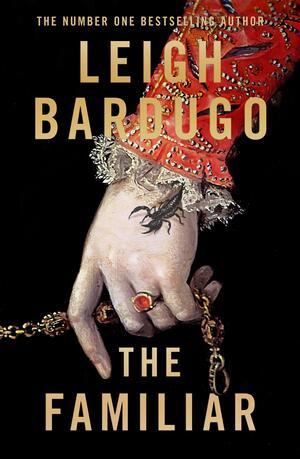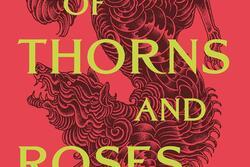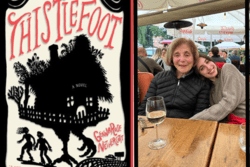A Summer Read with Substance
Ambition and secrets drive bestselling author Leigh Bardugo’s newest novel, The Familiar. The book is set in the Golden Age of Spain with the Inquisition at its height, yet begins with an ordinary and unglamorous scene: burnt bread and tired servants on the cusp of irrelevance. But Luzia, the Jewish maid of the household and the story's protagonist, has a secret: thanks to her Sephardic upbringing, she can perform small acts of magic using refranes (Ladino proverbs) she picked up from her mother.
The burning of the bread leads the Doña of the Ordoño household to discover Luzia's magic and creates an ominous backdrop: Luzia now faces increased scrutiny as so-called witches and heretics across Spain burn for their crimes against the church. Despite the risks, however, Luzia refuses to back down in her acts of magic. She craves a life of wealth, freedom, and opportunity, similar to the lives of her employers. And she sees the attention and fame she gains through her milagritos (“little miracles”)—smashing and then fixing drinking glasses at a dinner party, for example— as a way to get there.
Bardugo deftly sidesteps the opportunity to make Luzia a victim: while Luzia lacks the freedom of Doña Ordoño or even of her own aunt, Hualit, another Jew who has hidden her identity to attain riches and status in Spain, she still has the opportunities she creates from her magic.
Of course, along with freedom and opportunity comes the possibility of assimilation, and The Familiar presents us with this tension. Each character resolves this pull in different ways. Hualit chooses to remain loyal to her Jewish roots, forgoing pork, never working on Shabbat, and even hiring staff who will protect her secrets while she pays lip service to Catholicism as a converso. Conversely, Luzia feels pressure to eat pork to dispel rumors of her ancestry, does not observe, Shabbat, hides the Hebrew words that help summon her magic, and even adopts the performance name "La Hermanita" (the nun), as her audiences expand.
Each woman's choices make sense in light of her personal history: Hualit misses the religion that nurtured her as a child and yearns to make her way to a Jewish community outside of Spain. In contrast, Luzia feels angry at having been abandoned by her parents, one of whom died young and the other of whom went mad and failed to care for her, and at Hualit for not taking Luzia in. This resentment expands to include Judaism, even as she resents the wider Catholic society she is a part of that prevents her from being herself.
At the same time, both Hualit and Luzia exude a deep sadness. Both women know they will never be wholly accepted should their secrets be known. Both women hold ambitions for lives beyond their circumstances. And both feel trapped by their gender at a time where women were not granted agency or permitted to show ambition.
Bardugo’s exploration of these rich themes—oppression, class struggles, gender norms, antisemitism, and assimilation—take place against a backdrop of scheming for power, romance, and magic, providing a layered summer read that is as shallow or as deep as the reader wants it to be. Reading only for the plot, any fantasy or historical fiction buff would be happily carried along. But reading for the deeper themes provokes big questions: How far would you push and how much would you risk to feel alive again?








Thank you for the review. I enjoyed this book, the main character’s strength and silence, when she could have been complaining victimhood. It is a great read for our time.